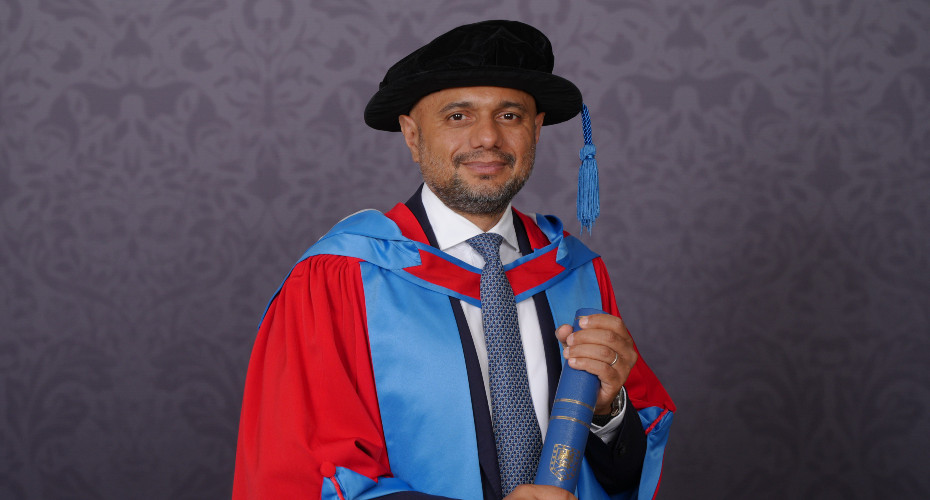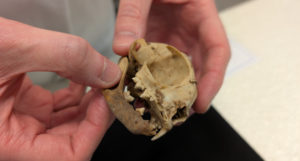Trailblazing parliamentarian Sir Sajid Javid honored by the University of Exeter

Sir Sajid detailed the barriers he had to overcome as he embarked on successful careers in banking and politics
Trailblazing parliamentarian Sir Sajid Javid urged new graduates to refuse to let others put limits on their ambitions as he was honoured by the University of Exeter.
Sir Sajid – an Exeter alumni – detailed the barriers he had to overcome as he embarked on successful careers in banking and politics as he collected his honorary degree.
He was born in Rochdale to Pakistani immigrant parents and raised in a working-class household. He was inspired by his parents’ work ethic and became the first member of his family to attend university. Before entering politics, Sir Sajid had a successful 20-year career in international finance, rising to become a senior managing director at Deutsche Bank.
Sir Sajid was elected as an MP in 2010 and quickly rose through the ranks of government. Over the years, he held several key Cabinet roles, including Secretary of State for Health, Home Secretary and Chancellor of the Exchequer.
He was widely respected for his competence across departments and for breaking new ground as one of the most prominent British politicians of Muslim heritage.
His time at the University of Exeter was the breeding ground for his political aspirations and interest in public service. His first experience of campaigning was when he was elected to the Guild of Students Council.
Sir Sajid’s lecturers remember how closely he followed the 1992 General Election – won by the Conservative Party – and his in-depth knowledge of the Labour Party manifesto.
Sir Sajid said to students: “One thing I have learnt along the way is this – throughout the course of your career – as you move from university life to whatever comes next – people are going to be telling you what you can and what you cannot do. People with letters after their name, people with experience, people with more authority, telling you what you are and not going to achieve. I’m here to pre-empt those people, to tell you there’s only one person who determines how far you go and that person is you. You shape the chance you want to accomplish. You define the impact you want to have and you shape the change that you want to make. Don’t let anyone tell you what you can and what you cannot achieve.”
Sir Sajid joked about his last visit to the University of Exeter – for his son’s graduation – which came in the week he had resigned from the Cabinet because he had lost confidence in the former Prime Minister Boris Johnson. He said he was in a “pretty good mood” and had met people in a petrol station on the way down who had spontaneously congratulated him. But during the day he met one of his former lecturers who wanted to tell him his son had achieved a first, something he hadn’t achieved three decades before.
He said: “I remember running into one of my old professors. I had at least expected a slap on the back, did I get one, no, I did not. He saw me, flashed a smile and said hello and then said “I see your son achieved something you did not, a first”. Professor Maloney, who is here today, thank you so much for putting me back into my box.”
At school a careers advisor told Sir Sajid the most he could hope for was to become a television repair man. His teachers told him he couldn’t do O level maths, despite it being one of favourite subjects. He ended up teaching himself and his father paid for him to take the exam independently, for which he got a B.
He decided he wanted to become the first person in his family to go to university but his school told him he could only take two A-levels so he left to take them at a local college instead. This meant when he arrived to start his degree in 1988 he was “absolutely delighted and thrilled” to be in Exeter.
But he faced further challenges when he decided he wanted to work in banking. Sir Sajid said British merchant banks turned him down because of his background. However US banks were “willing to take a punt” so he moved to New York.
Two decades later Sir Sajid again faced obstacles when he decided to enter politics. He was told he would not be accepted by the Conservative Party, but he told students he had succeeded because he “kept showing up”.



